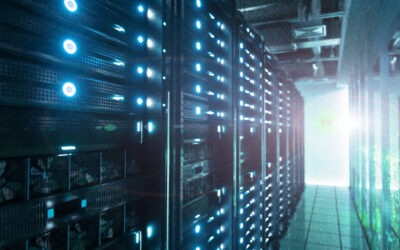A company’s data and computer systems are its life blood, and that’s why determining where and how you store your IT infrastructure is a fundamental business decision. Hosting your IT infrastructure within a data centre increases your resilience and protects you from expensive down time. However, choosing the wrong data centre partner could be detrimental to your IT infrastructure, and the many different aspects of what data centres provide can make them difficult to compare.
To ensure you make the right decision, it’s essential that you use the right criteria to choose a data centre partner.
Working with a data centre partner is the key to an IT system and a company keeping up with the modern business world, as long as you choose the right one.
1. Location
Your engineers will need to travel to the data centre regularly, both for ordinary maintenance and during emergencies, so a data centre in an inconvenient location could be a serious issue.
It’s important for your engineers to have as short a journey as possible, but this is not the same as the straight-line distance between your office and the data centre. You need to remember:
- Travel time is the important factor, pick the data centre that can be reached the quickest.
- If traffic is regularly bad, or trains are regularly cancelled, in the area there’s a good chance your engineers could be seriously delayed during an emergency.
- You need to make sure any potential data centres have good public transport connections.
2. Security
Whether you’re protecting your intellectual property or just trying to avoid a GDPR breach fine, it’s never been more expensive to suffer a security breach in your systems. It’s of absolute importance that a data centre’s physical and cyber security is good enough to protect your systems.
Physical Security
If an attacker gains physical access to your servers, then there’s almost nothing that can be done to stop them. For comprehensive physical security, a data centre should have all of the following:
- Gated carpark/ grounds
- Pivot, Tilt, Zoom Cameras
- Access lists
- 24/hr security
- Locked doors
- Locked racks
Cyber Security
A data centre partner needs to be able to keep up with the range of different cyber attacks, and offer a comprehensive suite of cyber security solutions. Your data centre must be able to provide you with:
- Firewalls – Protecting against a wide range of attacks.
- DDoS Mitigation – Make sure the data centre has capacity of 1Tbps or more.
- Managed Backup – If your system is corrupted or you’re locked out, you need to be able to restore quickly and easily.
- Vulnerability scanning – The only protection against easily attacked third-party programmes.
3. Redundancies
To prevent system down time is one of the main reasons to place your infrastructure into a data centre, so it’s important your data centre partner is well-equipped with redundancies to cover every different element of your computer system. 99.999% uptime is a common achievement of quality data centres, so you should be looking to find this.
Power Supply
Data centres should have Uninterruptable Power Supplies (UPS) to protect your systems against power failure, dangerous power surges, and fluctuations.
Most data centres also deploy generators, to charge up the UPSs so they can power their customers’ servers indefinitely, as long as the generators keep working.
Network Connectivity
The physical lines that connect into the data centre to supply data connectivity should be geographically diverse, so that if one of them is compromised the other one won’t be affected by the same issue.
Your data centre partner also needs to be carrier neutral. This gives data centres a high degree of ‘agility’ when it comes to switching networks, so if an internet provider has issues with their networks, the data centre can use a different network to stay online. This agility has the added bonus of keeping suppliers competitive, and costs down.
4. Power Consumption
Lower power consumption in a data centre signifies it is running with a high level of efficiency, which is important for two reasons:
- This will help keep costs down for them and their clients
- It is more environmentally friendly
PUE is how data centre power consumption is measured, with a PUE of 1 being a perfect score (meaning they use no energy beyond what the computers need). Average PUE is 2, but it’s common in the UK for data centres to have a PUE of less than 1.3, so this is what you should be aiming to find.
5. Connectivity
Moving your systems out of your office to a data centre greatly increases the amount of people remotely connecting to them. If your data centre’s connection speeds can’t keep up, the slow speeds and connections errors your employees face with cause a serious loss in productivity.
Find a data centre that is gigabit enabled, showing that they have capable connectivity infrastructure.
6. Growth and Scalability
Upscaling and upgrading your computer system is some of the most difficult and essential work performed by your IT team, and hosting in a data centre can go a long way to make this a lot easier.
Make sure you’ve picked a data centre that has the room, as well as the power and cooling capacity, for you to expand in the future if you need to put additional servers into your racks.
7. Range of Services Available
Your data centre’s advice and guidance will be invaluable when it comes to upgrading your system, and transforming your hardware entirely. They can help you pick the correct platform for your system, but only if they have a full range of different platforms available to offer you. Pick a data centre with a broad range of expertise, otherwise you risk them trying to attempt an upgrade they’re not equipped for, or they could deny you the platform option that would work best for your company because they don’t provide it.

